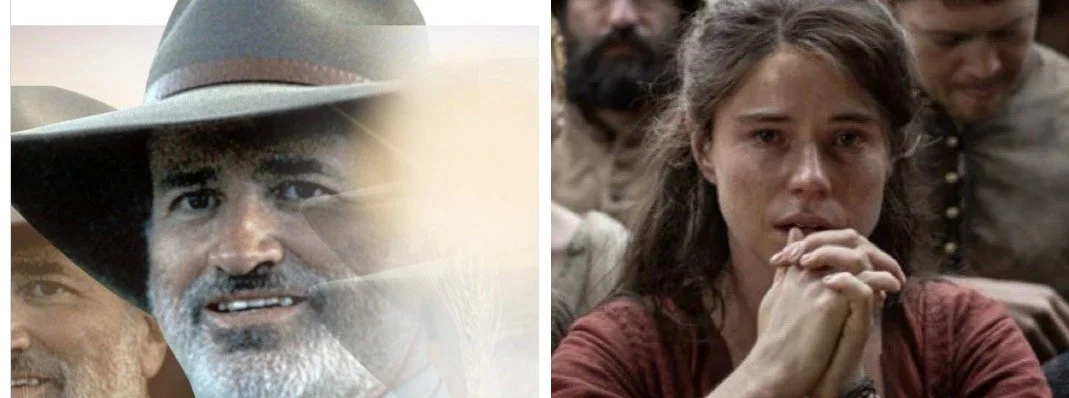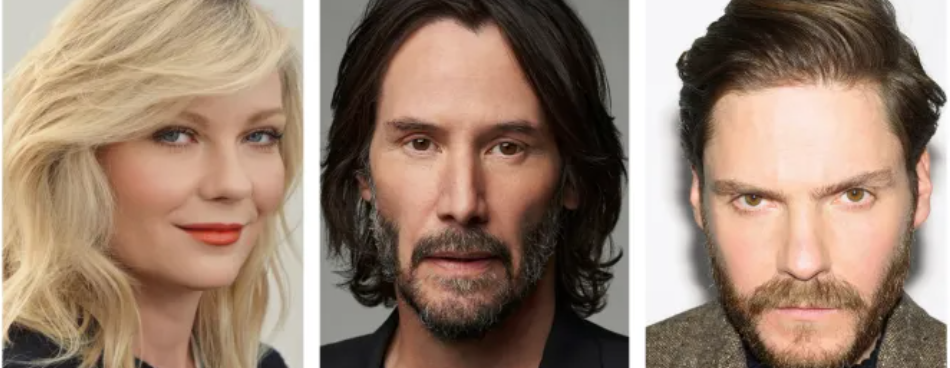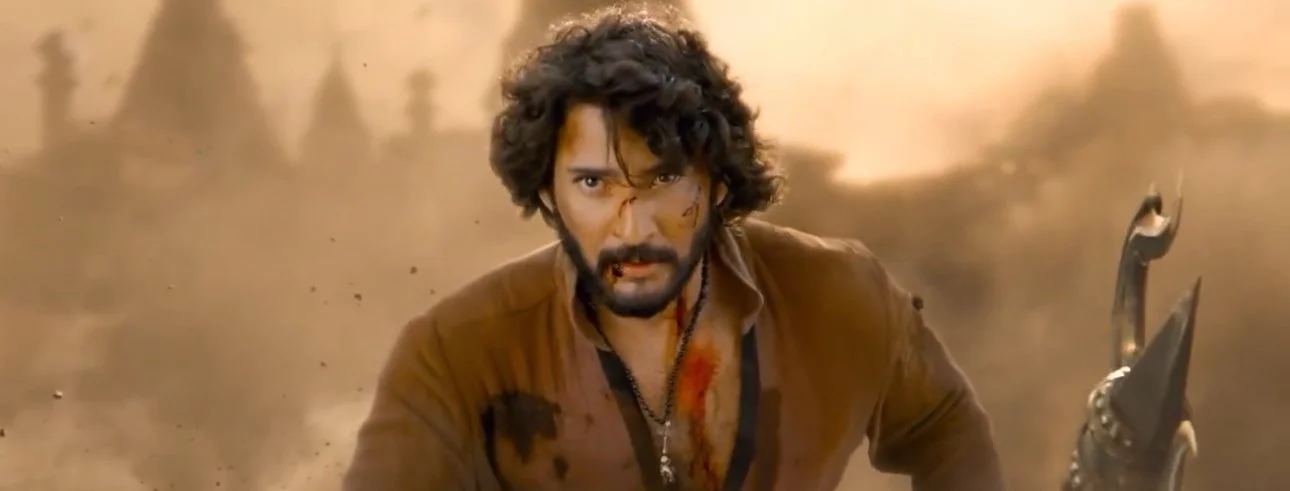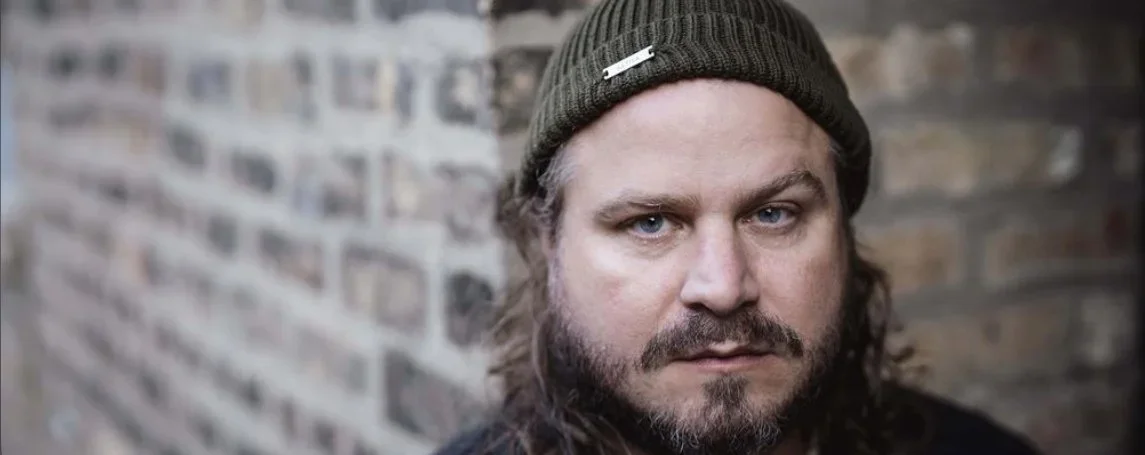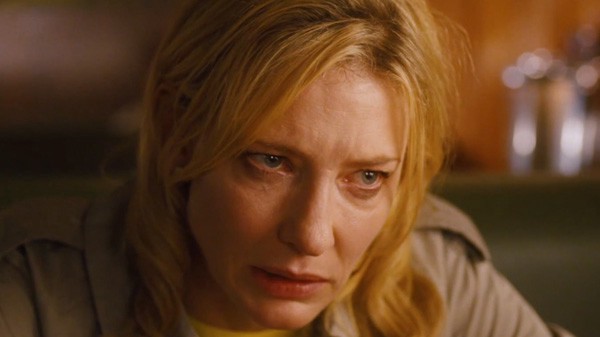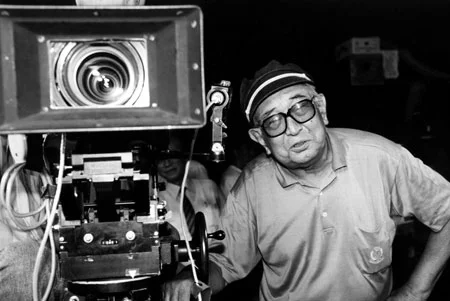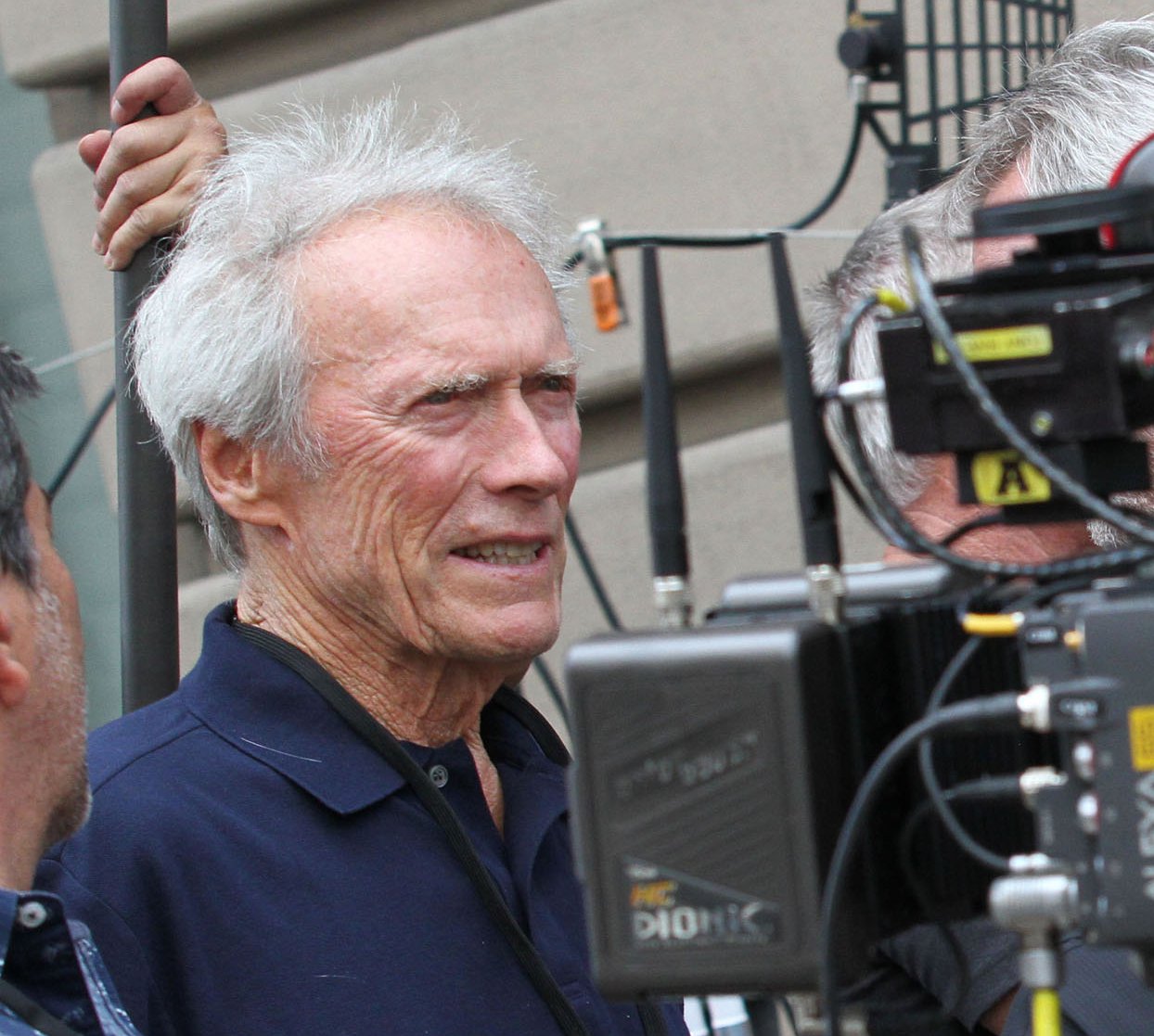1) L'Argent (Robert Bresson, 82)
Robert Bresson won the director's prize at Cannes for this stinging indictment of poverty and crime in France as a fake 500 Franc bill gets passed around from person to person until an unlucky delivery man tries uses it buy some food and gets caught by the police. He passes through a flawed legal system, holding no mercy for the poor, and eventually resorts to a life of crime to support his struggling family. "L'Argent" is a compelling morality tale that holds no prisoners and works on layers of social issues as its protagonist's innocent soul, slowly, but surely, turns into black ink by its conclusion. This would be Bresson's swan song as he would go on to live the last 16 years of his life in retreat.
2) Before the Devil Knows You're Dead" (Sidney Lumet, 83)
Post-1988's "Running on Empty," Sidney Lumet was struggling to regain his voice as an artist. The '90s weren't very kind to the man known as "The Prince of New York," with "A Stranger Among Us," "Guilty as Sin," "Critical Care," and, especially, "Gloria" burying his career down to the abyss. It wasn't until his final film, 2007's "Before the Devil Knows You're Dead," that Lumet pulled out his final great statement. In a career that spanned more than five decades and dozens of classics ("12 Angry Men," "The Verdict," "Prince of the City," "Network," "Dog Day Afternoon," "Serpico") Lumet put his old-school directorial chops to good use and his familiarity with crime genre. I wrote back in 2007 "It'd be a real shame for young filmmakers to not watch, study and ponder Lumet's film. It might feel small-scaled and simply rendered, but there's an artistry to the way the story is told that just doesn't exist in today's Hollywood and that, I fear, is going extinct." Sadly, I feel like that is exactly what's happened.
3) I'm Going Home (Manoel De Oliveira, 94)
This is another low-key yet compelling latter-day offering from the indefatigable Portuguese film-maker; given that it deals with a famous but ageing actor (Michel Piccoli once again) who decides to give up his boots, it was probably meant as such by Oliveira himself – though he was still going strong years later, having not only made some half-a-dozen other films in the interim but, at nearly 106, had two more productions already lined up before his death. "I'm Going Home" was, by far, the most accessible and approachable film the director made in his latter-day "renaissance," with a naturalism and emotional resonance that harkens back to the golden-age of European cinema in the 60s.
4) Blue Jasmine (Woody Allen, 79)
Yes, I'm cheating a bit here. Woody Allen was 79 years of age when "Blue Jasmine" was released in the summer of 2013, but we can all recognize that the film was an exemplary showcase of how the Woodman's still got it. I could have also included "Irrational Man," an underrated stunner from 2015 that had him dealing with the darkest of themes, and more importantly, with death itself. "Blue Jasmine" is the crowning performance of Cate Blanchett's career. Here she plays a Xanax-popping, middle aged New York bourgeois whose husband divorces her, sending her in a state of suicidal, depressive panic. I don't think I'd be stretching it by calling it Allen's best film since 1989's similarly themed "Crimes and Misdemeanors."
5) Saraband (Ingmar Bergman 85)
It'd be crazy to think that "Saraband" belongs in the same company as "Cries & Whispers," "Persona," "Through the Glass Darkly," "The Silence," "Wild Strawberries," "Scenes From A Marriage," "The Seventh Seal" and "Fanny & Alexander." However, what exactly is as good as these films? The impressive filmography Ingmar Bergman built over his long-storied career is the stuff of legend and, yet, here he was in his mid 80s making a film as luminous as "Saraband." It's a final roar from a master of cinema. as he revisits the characters of 1973 "Scenes from a Marriage" thirty years older, with Marianne sharing the dramatic and complicated relationship of John's family.
The film is vintage Bergman with revealing close-ups, emotionally intense dialogue, an old-fashioned style of film-making, and a surfeit of bitterness about the human condition.
6) Madadayo (Akira Kurosawa, 83)
The thirtieth and final film of Akira Kurosawa's career shows that he had plenty left in the tank before passing on. The film is a profoundly moving treatise on facing death with dignity and honor. The college professor in the film is entering the final years of his life, but he is always surrounded by fellow peers and students who have the most adhering of respects for him. As the birthdays pileup, so do the celebrations and the beers, which he always manages to drink down to the final gulp. There are tears, there are toasts, there is song — it's a celebration of life. The expressionistic simplicity and themes make it a heartbreaking swan song for one of the greatest cinematic directors we will ever see.
7) The Dead (John Huston, 81)
According to Pauline Kael, John Huston directed "The Dead" at eighty, from his wheelchair, "jumping up to look through the camera, with oxygen tubes trailing from his nose to a portable generator." If that wasn't enough, most of the time, he had to watch the actors on a video monitor outside the set and use a microphone to speak to the crew. And yet, what grand, masterful statement "The Dead" is, from one of the immaculate American directors of our time. He contemplates his own death through the story of a family gathering and the mistakes that haunt their pasts. The message of the film is simple, yet retains a heartbreaking sentiment: No matter how long they have been in their graves, the dead will always influence the living. Huston is proof of that.
8) Prairie Home Companion (Robert Altman, 81)
In a career that spanned dozens of classics ("Nashville," "The Player," "MASH," "McCabe and Mrs. Miller," "The Long Goodbye," "3 Women," "Shortcuts," and "California Split") nothing could prepare us for this kind of swan song from Robert Altman. "A Prairie Home Companion" is one his simplest, lightest affairs. It's a cinematic valentine to the radio, one that rivals Woody Allen's own "Radio Days" as a depiction of a simple, melancholic, diverse, but bygone era. Just like many of the other films on this list, it's a meditation on death, and yet, what joy that there is in every frame. Altman refuses to eulogize, and he instead dares us to think of the end while humming A Prairie Home Companion's most insanely catchy tunes imaginable.
9) Wild Grass (Alain Resnais, 86)
As if Alain Resnais didn't mess with our heads enough in his legendary five decade career as filmmaker ("Last Year at Marienbad," "Hiroshima, Mon Amour"), he pulled one final rabbit out of the bag with "Wild Grass." Time's Richard Corliss said the film was a tribute to the "con-artistry" that enveloped his career. Resnais has rejected cinematic naturalism all throughout his career, so why would he embrace it now? You might be tempted to say he riffs on David Lynch's "Mulholland Drive" here, until you realize that Resnais actually influenced Lynch in the first place. The surreal landscape he creates in "Wild Grass" isn't far off from the Twin Peaks valleys that have invaded Lynch's own filmography. As a character in the film states: "After the cinema nothing surprises you. Everything is possible."
10) The Last of the Unjust (Claude Lanzmann, 87)
Claude Lanzmann has had a fascination with the holocaust his entire life. His seminal eight-hour 1985 documentary "Shoah," is the final statement on the tragedy. No offence to Steven Spielberg of course. "The Last of the Unjust" is a spiritual sequel to "Shoah," a series of interviews Lanzmann concocted over the years, some that didn't make "Shoah" and others that were never even thought to have existed. At 87, Lanzmann is still haunted by the genocide that killed six million Jews, so much so that it's become an obsession, a seeking of the truth and a way for him to release all the tension and demons that have lured inside him.
11) Goodbye to Language (Jean-Luc Godard, 84)
One may believe that Jean-Luc Godard long ago jumped onto the bandwagon of cinematic insanity, at least since 1967's "Weekend," which many recognize as the last great, relevant statement of his career. Yet, you might have missed the true gem of his twilight years: "Goodbye to Language." Yes, it still has the odd political quote and name-dropping he has been known for churning out these last 30 odd years, as well as the fragments of thoughts that have invaded his post-'60s radical filmmaking, and the patchiness of his narratives. The man is, after all, Jean-Luc Godard, and with any film he makes comes a well-recognized package of ideas and metaphors and images that the cinephile, if he feels like doing so, tries to scramble together. Sometimes it does gel and other times it just doesn't. In "Goodbye to Language" it's the former that happens, but no thanks to the 3D, which stands as one of the best uses of the technology I have ever seen. It sustains a story that polarizes, but feels right given the the dazzling, brilliantly-colored images on display. Here's to hoping he shoots his next movie this way again. 3D and Godard go hand in hand. Who knew?
12) Sully (Clint Eastwood, 86)
Clint Eastwood is still making vital and relevant films in the twilight of his career. Case in point these two gems: "American Sniper" and "Sully." Both have the classicism of old-school Hollywood directing, and yet, they feel vital and current. The resonant theme that binds both is the cost of hero worship. Both films have male characters who feel isolated and flawed, despite being deemed heroes by those around them. In a career that spans more than 50 years in the director's chair, Eastwood proves yet again that he is a master at the game, honing his craft and, as Time's late great Richard Corliss would say, he makes it seem "as if the story is telling itself." Who else can pull that off these days?
